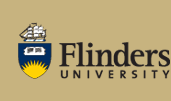
The Bachelor of Ecotourism requires three years of full-time study (or the equivalent part-time) and the honours program an additional year (or the equivalent part-time). The course is offered by the School of Biological Sciences, within the Faculty of Science and Engineering.
The minimum requirements for consideration for entry to all undergraduate courses are specified in detail in the University Entry Requirements.
The course aims to produce multidisciplinary graduates suited to careers as development officers, wildlife carers, operators, guides or planners in sustainable tourism. Students will understand the key issues in biodiversity and conservation, will have skills to analyse and evaluate business and science data, and can apply their communication and business skills to create interpretive material for the sustainable tourism industry. Graduates have:
To qualify for the Bachelor of Ecotourism, a student must complete 108 units with a grade of P or NGP or better in each topic, according to the program of study below.
No more than 45 units of First Year level topics may be included in the 108 units for the degree.
Not all topics are necessarily available in a given year.
36 units comprising:
AUST1004 An Introduction to Aboriginal Studies (4.5 units)
BIOL1101 Evolution of Biological Diversity (4.5 units)
BUSN1011 Accounting For Managers (4.5 units)
BUSN1012 Business Communication (4.5 units)
EASC1101 Earth and Environmental Sciences (4.5 units)
ECOT1101 Ecotourism 1 (4.5 units)
ENVS1702 Environment, Economy and Culture (4.5 units)
One of:
BIOL1102 Molecular Basis of Life (4.5 units)
BIOL1112 Biology and Society (4.5 units)
22.5 units comprising:
BIOL2701 Experimental Design and Statistics for Biology (4.5 units)
ECOT2702 Ecotourism 2 (4.5 units)
ECOT3700 Ecotourism 3 (4.5 units)
TOUR3102 Tourism Placement A (4.5 units)
TOUR3103 Tourism Placement B (4.5 units)
At least 18 units from:
BIOL1102 Molecular Basis of Life## (4.5 units) OR
BIOL1112 Biology and Society## (4.5 units)
BIOL1201 Introduction to Aquaculture## (4.5 units)
BIOL2702 Genetics, Evolution and Biodiversity (4.5 units)
BIOL2711 Ecology (4.5 units)
BIOL2712 Animal Diversity (4.5 units)
BIOL2722 Disease and Immunology (4.5 units)
BIOL2742 Marine Ecology (4.5 units)
BIOL3701 Conservation Biology and Restoration Ecology (4.5 units)
BIOL3702 Marine and Freshwater Biology (4.5 units)
BIOL3703 Vertebrate Palaeontology (4.5 units)
BIOL3711 Plant and Algal Diversity (4.5 units)
BIOL3712 Integrative Physiology of Animals and Plants (4.5 units)
BIOL3721 Behavioural Ecology and Sociobiology (4.5 units)
BIOL3751 Marine Mammals, Birds and Reptiles (4.5 units)
CHEM1101 Chemistry 1A## (4.5 units)
CHEM1102 Chemistry 1B## (4.5 units)
CHEM1201 Introduction to Chemistry A## (4.5 units)
CHEM1202 Introduction to Chemistry B## (4.5 units)
CHEM1702 Science and Society## (4.5 units)
CHEM2711 Spectroscopy and Data Anaylsis (4.5 units)
CHEM2712 Separation Science (4.5 units)
EASC2701 Coasts and Oceans (4.5 units)
EASC2702 Global Climate Change (4.5 units)
EASC2722 Sedimentary Processes (4.5 units)
EASC3732 Geological Processes (4.5 units)
PHYS1701 Physics for the Life Sciences A## (4.5 units)
PHYS1702 Physics for the Life Sciences B## (4.5 units)
STAT2700 Applied Statistics Laboratory (4.5 units)
Select remaining topics from elective topics* (topics across the University where entry requirements are met), to make a total of 108 units.
##No more than 45 units of First Year topics can be taken.
In their choice of electives, students may focus their electives in particular areas of study, or opt for a broad range of electives across disciplines. For more focused study, students may opt for an emphasis in Business, Development Studies, Education, Language, Tourism, Environmental Management, or Biology.
*Students intending to enrol in the BSc (Honours) program in the Biological Sciences must complete a minimum of 36 units of BIOL topics in Second and Third Year. Students are advised to consult with the Course Coordinator about the selection of topics that will meet the BSc (Honours) program admission requirements.
CRICOS Provider: 00114A | Updated: 05 Aug, 2010